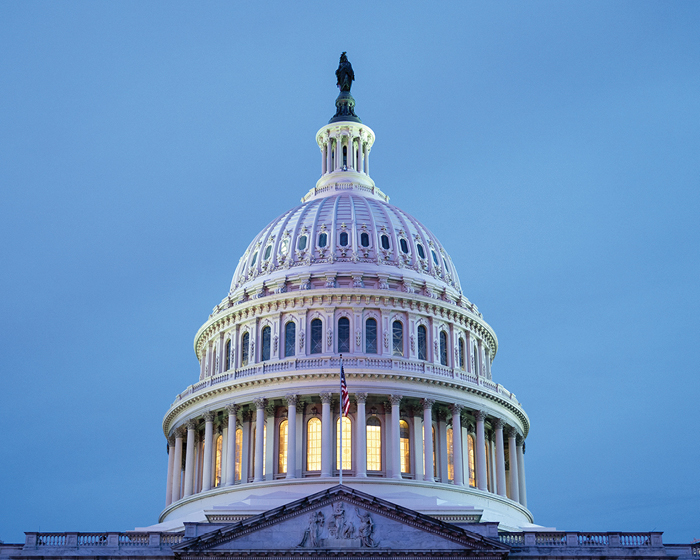Key Takeaways
- As Congress enters a quiet(er) period, lawmakers are drawing up the big 2025 tax bill.
- One big question: To measure the bill's cost based on current policy, or current law?
- The technical question has huge implications for politics, and whether the bill will be permanent.
- Repealing the Inflation Reduction Act credits could go a long way towards paying for the tax bill.
- With issues like R&D deductions, the bill could end up bigger than a mere TCJA tweak.
Since last week's government funding showdown, Washington has been in a period of calm – or at least, what passes for calm these days.
Behind the scenes, lawmakers and tax-writers from both chambers of Congress are busy writing up legislation to extend expiring provisions of the 2017 Tax Cuts and Jobs Act. Using the reconciliation procedure which avoids a Senate filibuster, passing that package is expected to take up much of the rest of the year. And Republicans are still at the stage of debating tactical and procedural questions.
One of those big questions is on the "baseline," used by Congress' official budget scorekeepers to estimate the cost of the legislation. While the Congressional Budget Office and the Joint Committee on Taxation have usually based 10-year budget estimates on current law – which would include the sudden boost in revenue when the TCJA provisions expire – there's been a push among some Republicans to instead use a "current policy baseline," assuming that the tax laws as they are in 2025 would extend indefinitely. Deciding which assumption to use could swing the estimate by trillions of dollars.
For a wonky budget issue, this has become a heated debate among commentators, with supporters claiming a current policy baseline corrects a bias in scoring towards tax hikes, and opponents saying it amounts to waiving away increases to the federal debt.
Despite how touchy the issue has become, it’s sometimes hard to pinpoint why it matters. The reconciliation rules don’t put an overall cap on the legislation’s cost. And there will be plenty of budget estimates, from within Congress and from outside organizations. Lawmakers can point to whichever one they prefer. The numbers themselves won't change.
Much of it is rhetorical and political. An “official score” carries more weight among lawmakers, and the higher it is, the harder it may be for some to get to “yes.” And the lawmakers are wary of changing the reconciliation rules as they go – it could be seen as undermining the filibuster rule, which most Senate Republicans want to protect.
But there is one big substantive reason why the budget estimate matters. Reconciliation does require that legislation not increase the deficit in the years following the 10-year period after the legislation is enacted. There’s a strong push among Senate Republicans to make this extension permanent, so Congress doesn’t have to do this all again in 10 years (or earlier, if they need to shorten the timeframe to reduce cost further). It may be hard to find sources of revenue to offset that, but using current policy as a baseline negates that requirement.
It just may not be a solution everyone is comfortable with – which, with few votes to spare, could be a bigger problem for Republicans.
Green Energy Credits: On the Menu?
In the scramble for potential sources of revenue to help pay for the TCJA extension, the tax credits created by the Inflation Reduction Act are an enticing option. But even though it was a Democratic accomplishment, many Republican congresspeople have a favorite credit they wouldn’t want to see go, making the calculations tricky. The Tax Foundation, a conservative-leaning D.C. think tank, released yesterday different cost estimates of a whole or partial IRA repeal.
Other Items of Note....
Crapo Says Tax Package Will Be Bigger and Broader Than Expected – Doug Sword, Tax Notes ($):
Crapo estimated that it would cost about $500 billion alone to restore and make permanent research and development expensing, bonus depreciation, and a more liberal formula for computing net interest deductions.
The Tax Angle: Lawmakers Huddle To Mull TCJA – Stephen Cooper, Law360 Tax Authority ($):
Anti-tax group holds fire on popular Trump proposals – Zach Cohen, Bloomberg Tax ($)
“Those are very popular,” Club for Growth President David McIntosh told reporters Thursday over lunch at a restaurant down the street from the White House. “Club won’t oppose those, but they’re less pro-growth, and so we’ll focus our effort” elsewhere.
R&D’s tango with the tax bill – Laura Weiss, Punchbowl News
We're Here to Help


